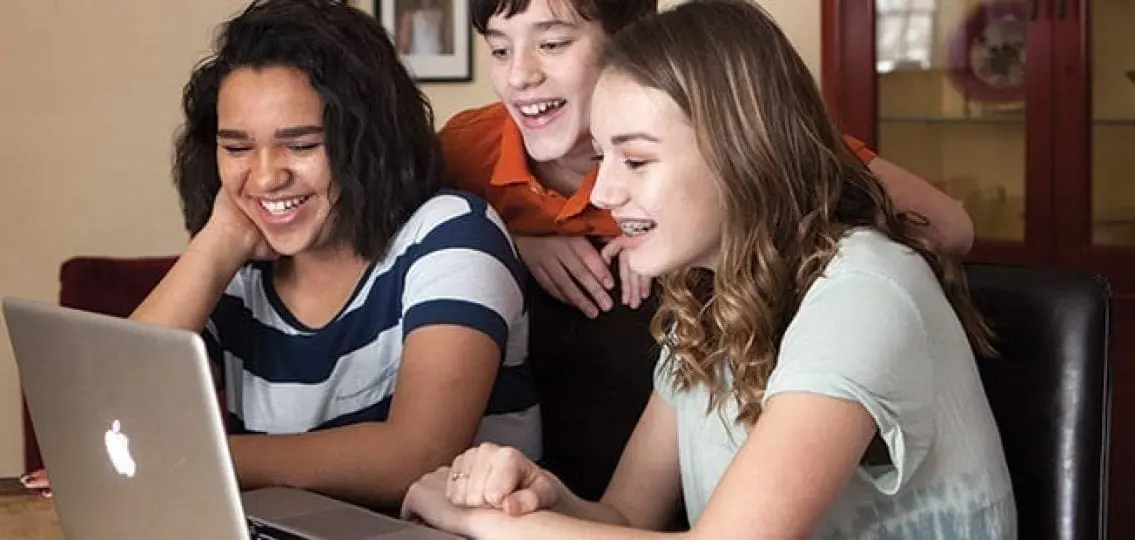My oldest daughter got a smart phone when she entered middle school. She was soon begging for her own Instagram account. Everybody has one, Mom. Even if everyone had one, I was reluctant to give in. So many articles I have read argue that middle schoolers aren’t mature enough to handle social media interactions. There are already all sorts of age restrictions for social media. But some experts suggest that middle school is exactly the right time to introduce kids to social media.

Dr. Bradford Brown, Professor of Educational Psychology at University of Wisconsin-Madison, encourages parents to provide middle schoolers social media access if they request it.
During this stage of adolescence, parents are better able to guide kids on how to use social media appropriately.
“Parents have much more control earlier,” Brown says. “Kids from 11 to 13 are not as creative with workarounds as they’re going to be from 16 to 18.”
With regard to social media usage, parental involvement can take different forms. Parents can give kids access to their own social media accounts so that they can monitor all activity. Or the parent and child can open an account together. Sharing an account makes sense for kids under 13, the minimum age for most platforms. Kimberly Hudson, mom of two teens and the Director of the Center for the Study of Boys at St. Christopher’s School in Richmond, VA, doesn’t allow her kids to sign up for a social media account before the minimum age because they would have to misrepresent themselves. “The fact that he has to provide his age opens up an important conversation about honesty,” Hudson says.
If their kids are old enough to have their own accounts, like mine was when I eventually gave in, parents can stay involved by following their child’s account and reviewing posts and responses. “They can then engage in conversation about what’s healthy and unhealthy,” Brown says. “Kids need conversations, though, not lectures.”
Parents need to talk to kids openly, and without judgment, about what other kids are doing on social media. And about the consequences of their actions.
This kind of monitoring helps to mitigate the potential negative consequences of social media, including online aggressive behavior and inappropriate offline interactions. Parents’ biggest fear—kids interacting with unknown predators—is realized less frequently than media might suggest. “Those interactions are becoming rarer as young people become more attuned to using privacy features,” Brown says. “Our research shows that most young people interact online with the same individuals as they interact with offline.”
There are obviously disadvantages to social media use. There are also benefits, however, such as being able to keep in touch with friends more easily. My daughter uses her account to stay connected to friends from the town where we used to live. The messaging feature enables her to contact local friends she doesn’t see every day. The benefit of maintaining these kinds of connections is reflected in the results of a recent survey conducted by Common Sense Media.
The majority of teens surveyed described social media usage as positive. Many of them claimed social media helps them feel less lonely, less depressed, and more confident.
Just as middle schoolers are still trying to figure out in-person social interactions, they are also working to navigate their online presence. As a result, they tend to be fairly conservative in terms of their social media usage. “They act more as consumers than producers,” Brown says. So allowing access to social media during middle school enables kids to become familiar with the environment (and the rules) before they reach the stage when they are more likely to post frequently.

As with all things, parents need to take cues from their kids to determine readiness. If a kid’s in-person interactions suggest they are ready for the responsibility, there are compelling reasons for allowing middle schoolers to use social media with guidance. “If parents wait until ninth grade, their kids are going to be naïve about expectations surrounding social media,” says Brown. For good or bad, social media has become a key component of social engagement. It will eventually be a part of every child’s interactions. Helping them learn to navigate social media in middle school can build their confidence and strengthen their connections through positive online interactions.



